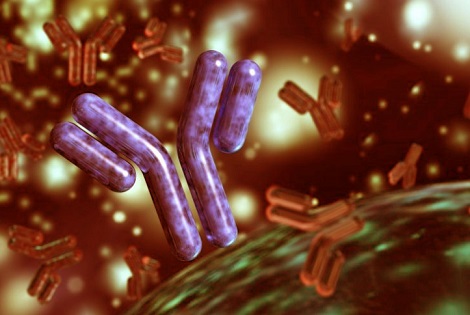Study Shows That Individuals Who Have Recovered from COVID-19 Are More Likely to Develop Antinuclear Antibodies
Nikhil Prasad Fact checked by:Thailand Medical News Team Feb 01, 2025 2 months, 1 week, 4 days, 22 hours, 24 minutes ago
Medical News: The Link Between COVID-19 and Autoimmunity
A new study has found that individuals who have recovered from COVID-19 are more likely to develop antinuclear antibodies (ANA), a type of autoantibody associated with autoimmune diseases. The research, conducted by scientists from Bingöl University and İnönü University in Türkiye, shows that ANA positivity is significantly higher among those who have had COVID-19 compared to healthy individuals. This
Medical News report examines the findings and their potential implications for public health.
 Study Shows That Individuals Who Have Recovered from COVID-19 Are More Likely to
Study Shows That Individuals Who Have Recovered from COVID-19 Are More Likely to
Develop Antinuclear Antibodies
Understanding the Study
Researchers set out to determine whether there was an increased prevalence of ANA in individuals who had recovered from COVID-19. ANA are autoantibodies that attack the body's own cells, potentially leading to autoimmune conditions such as lupus, rheumatoid arthritis, and systemic sclerosis.
The study included 400 participants, divided equally into two groups: 200 people who had recovered from COVID-19 and 200 healthy individuals. None of the participants had any chronic illnesses, including autoimmune diseases. To detect ANA, the researchers used three different enzyme-linked immunosorbent assay (ELISA) test kits, which measured specific ANA subtypes - anti-dsDNA, anti-ENA, and anti-Hep-2 nucleus antibodies.
Key Findings
The results were striking. Among the healthy individuals, 19% tested positive for anti-dsDNA, 18.5% for anti-ENA, and 15% for anti-Hep-2 nucleus antibodies. However, the rates were much higher among those who had COVID-19:
-48.5% tested positive for anti-dsDNA
-40.5% tested positive for anti-ENA
-42% tested positive for anti-Hep-2 nucleus antibodies
This means that individuals who had COVID-19 were more than twice as likely to test positive for ANA compared to those who had never contracted the virus. The presence of these autoantibodies could indicate a greater risk of developing autoimmune diseases in the future.
What Causes This Increase in ANA
Scientists suggest several possible explanations for the rise in ANA among COVID-19 patients. One leading theory is that the virus triggers an abnormal immune response. COVID-19 is known to cause widespread inflammation, which may lead to the overactivation of the immune system. In some individuals, this hyperactive immune state can cause the body to mistakenly produce antibodies that attack its own tissues.
Another possible explanation is molecular mimicry, where the virus's proteins resemble those found in the human body. When the immune system fights off the infection, it may also mistakenly target the body’s own cells, leading to the production of autoantibodies. Some researchers believe that this phenomenon could contribute to the long-term e
ffects seen in some COVID-19 patients, commonly referred to as “long COVID.”
Gender Differences in ANA Positivity
The study also found that women were significantly more likely to test positive for ANA than men. Among the healthy individuals, about two-thirds of those who tested positive were women. A similar pattern was observed in the COVID-19 group, where women accounted for nearly 67% of ANA-positive cases. This aligns with existing research showing that women are generally more susceptible to autoimmune diseases than men.
Rising ANA Levels in the General Population
An unexpected finding of the study was that even in healthy individuals who had never had COVID-19, ANA positivity rates were higher than what was previously reported in the medical literature. While past studies estimated ANA positivity in the general population to be between 5% and 15%, this research found rates as high as 20%. This increase could indicate a rising trend in autoimmune conditions worldwide, though more research is needed to understand the underlying causes.
What This Means for Public Health
The findings of this study raise important concerns about the long-term effects of COVID-19. If the virus increases the likelihood of autoimmunity, there could be a surge in autoimmune diseases in the coming years. This could place an additional burden on healthcare systems, as autoimmune diseases often require long-term treatment and management.
Medical experts emphasize the importance of monitoring individuals who have had COVID-19 for signs of autoimmune diseases. People who experience persistent symptoms, such as joint pain, chronic fatigue, or unexplained inflammation, should seek medical evaluation to determine if they have developed an autoimmune condition.
Conclusion
The research provides strong evidence that COVID-19 is linked to a significant increase in the prevalence of ANA. The study's findings suggest that a large portion of individuals who have had COVID-19 may be at higher risk of developing autoimmune diseases in the future. Additionally, the rising ANA positivity rate in the general population highlights the need for further investigation into environmental or infectious factors that may be contributing to this trend.
Healthcare providers and researchers must continue to study the long-term effects of COVID-19 on the immune system. Identifying those at risk early on could help in managing and potentially preventing autoimmune complications. As new variants of the virus continue to emerge, ongoing surveillance of autoimmune markers will be crucial in understanding the full scope of COVID-19’s impact on public health.
The study findings were published in the peer-reviewed Journal of Medical Science.
https://link.springer.com/article/10.1007/s11845-025-03886-8
For the latest COVID-19 News, keep on logging to Thailand
Medical News.
Read Also:
https://www.thailandmedical.news/news/link-between-antinuclear-antibodies-and-covid-19-severity
https://www.thailandmedical.news/news/the-role-of-autoantibodies-in-long-covid
https://www.thailandmedical.news/news/canadian-study-shows-even-after-a-year-up-to-41-percent-of-post-covid-individuals-still-have-autoantibodies-that-causes-autoimmune-issues
https://www.thailandmedical.news/news/breaking-french-study-discovers-that-autoantibodies-neutralizing-type-i-interferons-found-responsible-for-20-percent-of-all-covid-19-deaths
